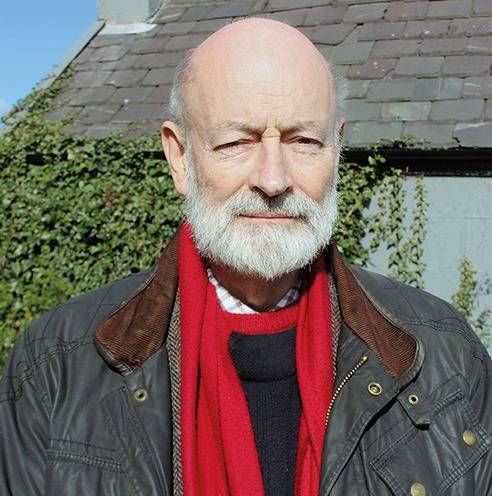An anniversary is the time not for self-congratulation on what we have been doing, but to think about what we might better be doing in a different future from when we began. People often know what we stand for, but have little sense of what we are doing. They know that we stand for the collective pride and dignity of all those with no religious belief, but who see nothing to worry about in that, and non-the-less believe firmly that through reason and reasoning men and women can live together in peace, justice and mutual support.
So far, so good. But so often even this seems to create a negative impression. For what are those humanists doing? Sometimes non-believers who are not members of the humanist movement might think that humanists, to judge by some letters in the press by prominent humanists and rationalist, are still a somewhat Victorian god-hating body particularly obsessed with the democratic injustice of so much religious broadcasting. My old joke is (among us faithful) that too many rationalist seem to believe in God but to dislike him personally.
For myself I cannot now take combat against public assertions of divine existence as seriously as the issue once deserved in an age of faith. And while I do, indeed, resent the amount of time the BBC gives to religious broadcasting, I resent that only mildly: I doubt if it does much harm to man or beast; that campaign is rather low on my scale of social priorities. Indeed, my willingness to put pen to paper on such issues (what else can one do?) is somewhat limited by principles of tolerance that I have actually signed up to.
'Signed up to? Yes, quite literally. For instance, the report that I chaired on 'Education for Citizenship and the Teaching of Democracy in Schools' (September 1998, QCA) spoke of the need to teach and learn toleration and respect for the variety of national, regional, ethnic and religious identities in the United Kingdom, and this followed in the consultative statutory order on Citizenship (i.e. addition to the national curriculum) published this May by David Blunkett. Now, of course, there are limits to toleration. Toleration must be mutual to work well; as J.S. Mill classically stated, not to interfere with the rights of others if they do not interfere with mine. But toleration is not permissiveness or (the condition of most of our fellows) could not-care-lessitude. Toleration implies that we do morally disapprove (to an appropriate degree), but that we contain our behaviour. . . The late Ernest Gellner (a staunch non-believer) coined the epigram: 'socially tolerant always, intellectually tolerant never'. But if intellectual intolerance in the seminar is always appropriate, in society the strength of that expressed disapproval must always be relevant to circumstances. That is why some of the old Church-baiting rationalism can now seem, in the eyes of others, of course, somewhat irrelevant and silly.
We do live in a pluralistic society and we need to take that seriously. And to take it seriously, it means some knowledge of the beliefs of others - in case we accidentally cause intolerable offence to others. 'Pig grease on the muskets', as it were, although I believe that there were other causes of the Indian mutiny. Hence I think it wholly right and proper that humanists have been involved in recent years in the formulation by educational authorities of moral education and religious education curricula. All our children need to know something of the major religious beliefs that are found in our society, in the much wider world indeed. They also need to know, and know by gaining educational experience, how to think critically: to make up their minds for themselves about adherence to belief systems and crucial moral dilemmas that can result.
Let me come down to earth. Going through school today (and how I wish that many popular journalists could be so re-educated) we need to know something of the typical beliefs of Islam, not just scare-stories or, sometimes, covert racism marked as religious criticism. But - and this is our very big 'but' - we do not abandon, indeed we need to assert publicly even more, the standards if universal reason and human rights that arose in the eighteenth century of enlightenment. Most of our fellow countrymen share, in fact, these beliefs in a very inchoate, passive, lazy or uncomprehending way. The Human Rights educators and activists may not se themselves as card-carrying humanists, but so what? They assert these values and that should cheer us if ever we are depressed and think we are a movement without explicit mass support. Most modern churchmen also believe in universal human rights. But these values do not always override the beliefs of religious minorities under the protection of our national laws and who (in the sense I have argued) we have a moral duty, expressible in purely secular terms, to tolerate. To tolerate is not to condescend, but is to express honestly differences. But toleration, again, is not permissiveness. Moral dilemmas do occur. For instance, the more devout and intense Islamic communities can bring pressures on their women, especially, not to leave the community, still less marry outside the community, which can go close to, sometimes over, the boundaries of law; and are, in principle, contrary to ideas of human rights.
These are dilemmas to which there is no easy answer. To allow ideas of 'group rights' (that groups can enforce their own moral codes on their members) is not compatible with principles of reason, beliefs of the majority or of civil order. But the answer is not faith in inevitable secularisation, nor stern attempts to promote it (within the pages of journals) nor philosophical terms, the clash of values is unbridgeable, insoluble; the answers lie in practical compromises in personal and social behaviour.
Let me end as I began. What do people think we are doing? In my neck of the woods the humanists are a monthly discussion group of people (and why not?) at least as old as myself now in my seventieth year. Have we the capacity to organise in the universities and colleges? Not, I suggest, under the ancient banner of anti-religion but under the positive banner of critical thinking, of popular not technical philosophy. But beyond that, what can humanist morality do for our fellows. Both on my citizenship work and in a period of my life when I was marginally involved in Northern Irish affairs. I often found community workers on the ground to be men and women of faith, albeit in the modern manner, ecumenical to a very high degree. Do we lack the organisation to be in on that, sleeves rolled up? Just one example. There is a worthy inter-faith body called The Citizenship Organising Foundation, particularly strong in the East End of London, but with groups in loose networks all over the country. They aim to help people in localities to combine to effect the well-being of their own communities by their own actions. They run training programmes to this end on political and communal action. They invoke my old book, In Defence of Politics, in that context (a decidedly secular work, I hasten to add). Would that we were in on this. They were happy to have Andrew Marr and myself on one of their big platforms talking on community action. I was happy to go - a heart-warming experience. People should see us as a positive public presence for social good, rather than as (not how we see ourselves, but how we are seen) as somewhat negative voices. Most people if they cannot believe in anything, religious or political, must be doing something - something better, I hope, than shopping sport, spending and occupational promotion. The retreat of the Welfare State has left a vacuum to be filled in part at least, of necessity, by voluntary action. To turn William Booth on his head: why should we let the godly have all the best tunes and the greater public presence.

